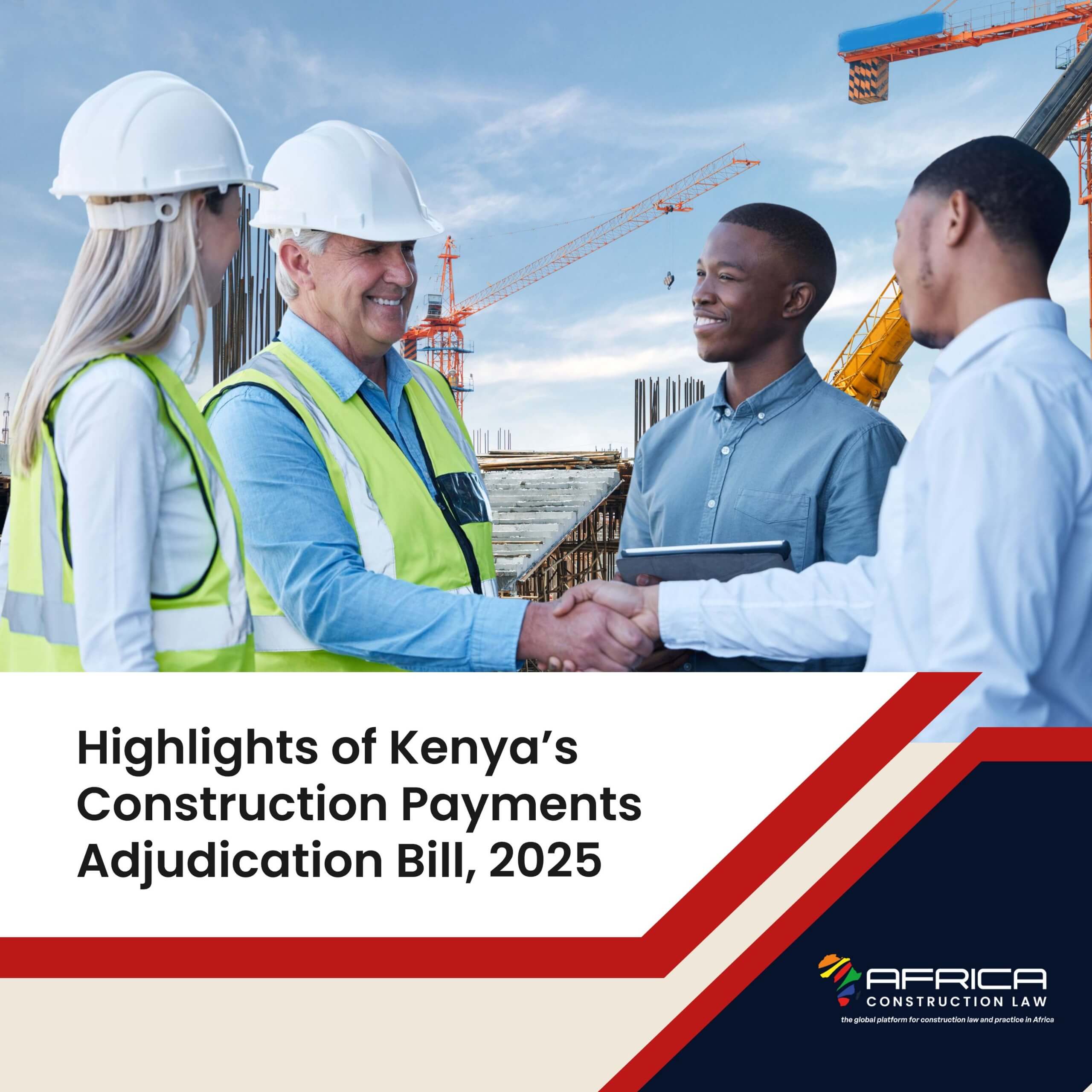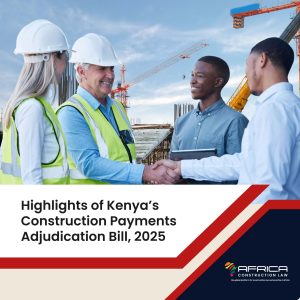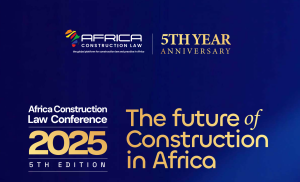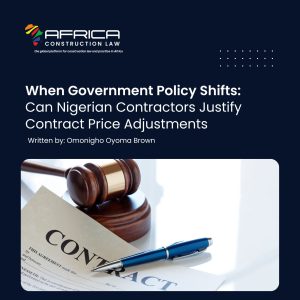The Construction Payments Adjudication Bill, 2025, is a welcomed piece of legislation in Kenya to streamline dispute resolution in the construction sector. The recital of the Bill, closely aligned with the principles of the United Kingdom’s Housing Grants, Construction and Regeneration Act 1996 (HGCRA) sets out that it is an Act of Parliament to provide a mechanism for dispute resolution through adjudication in the construction industry, to facilitate the recovery of payment and other remedies for disputes in the construction industry; and for connected purposes. To that extent, this legislation although intended to resolve primarily payment disputes, the same will also be relied on to resolve various types of eventualities that could possibly delay and hold up on-going projects such as disputes over liability in relation to costs arising from a critical delay.
When enacted (as the Construction Payments Adjudication Act, 2024), it will provide a fast, legally enforceable adjudication process for payment-related disputes, independent of whether a contract explicitly includes adjudication or not. It will apply to all construction contracts carried out either entirely or partially in Kenya. However, the proposed Act will not apply to a construction contract whose terms provide for a procedure other than adjudication for payment disputes, or adjudication of payment disputes otherwise than provided under the proposed Act.
Construction professionals in the industry have faced challenges over the past years in relation to payment disputes and project delays. Regrettably, both the courts of law and alternative dispute resolution mechanisms such as arbitration have not remedied the industry’s pain points on costs or timelines; and in turn exacerbated industry inefficiency, increased project costs and furthered project timelines. The Bill intends to promote timely payments and fair remedies for disputes in Kenya’s construction sector. It seeks to strengthen adjudication practice while ensuring efficiency and accountability. The UK’s move to a statutory system in 1996 is widely credited with improving cash flow and reducing the incidence of protracted and costly legal battles in its construction industry.
The said legislation also prescribes the procedure to be followed to by a party seeking a payment claim which is done upon issuance of a payment schedule within thirty (30) days from the date the claim arises.
Another key feature of the proposed law is the establishment of a statutory right to adjudication for parties to a construction contract, also a core principle of HGCRA. Under the proposed law, just like arbitral proceedings before an arbitrator, it prescribes that the Evidence Act Cap. 80 shall not apply, wherein section 1 of the Evidence Act Cap. 80 outlines that the Evidence Act Cap. 80 shall be applicable to all judicial proceedings in or before any court other than a Khadi’s court, but not to proceedings before an arbitrator. Kenya’s Evidence Act is an Act which applies to all judicial proceedings save for proceedings before the Kadhi’s court, as well as in relation to proceedings before an arbitrator. The Evidence Act in Kenya provides for the rules and principles governing the presentation and assessment of evidence in judicial proceedings, including what constitutes admissible evidence, the burden of proof and how different types of evidence, such as documents and digital records, should be handled in court. The purpose of the Evidence Act is to establish a coherent framework for proving facts to reach judgments in legal matters, ensuring fairness and consistency in the legal.
In Kenya, all forms of Alternative Dispute Resolution mechanisms have adopted a “flexible” approach when it comes to the procedure adopted. Since strict rules of procedure or evidence are not abided by, parties seek to yield durable solutions. Here, we mean that strict rules of evidence such as rules relating to character evidence, statements by persons who cannot be called as witnesses, competency of witnesses and rules as to examination of witnesses; are not strictly abided by. Therefore, the impact then becomes that when implementing legislation such as the Construction Payments Adjudication Bill, 2025, substance supersedes strict procedure at the hearings.
The adjudication dispute is to be heard and determined within fourteen (14) days of receiving a response to the dispute/reference, although this time can be enlarged by consent of the parties. Once an adjudication decision is made, the party the orders are made against is required to pay the said amounts within seven (7) days of delivery of the decision or as specified in the decision. Further, the same is to be enforced by way of an application to the High Court.
For parties to these proceedings, especially the party seeking to enforce the adjudication decision, perhaps the legislation would have also prescribed strict timelines in which the High Court is required to hear and determine any such enforcement application. Such strict timelines have been adopted in public procurement disputes and ensure that bidders and procuring entities resolve any disputes in a timely and cost-effective manner.
Conclusion
The introduction of the Construction Payments Adjudication Bill, 2025, represents a significant step forward for Kenya’s construction industry. By adopting the core principles of the UK’s
Authors
James oketch, MCIArb, Managing Partner, James Oketch and company Advocate, Kenya, Emilio Linde-Arias , Geotechnical Engineer and Director, Alvarez & Marsal, London


















